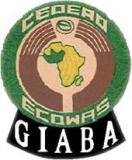Meetings of the GIABA Technical Commission and Ad Hoc Ministerial Committee took place in Abidjan, Côte d’Ivoire, from 2 to 5 May 2012. The Technical Commission considered, among other issues, the follow-up reports on the mutual evaluations of GIABA member countries: Benin, Cape Verde, Gambia, Ghana, Guinea-Bissau, Liberia, Niger, Nigeria, Senegal, Sierra Leone and Togo.
The revised FATF Recommendations, adopted by FATF in February 2012, were formally presented at the GIABA meetings, and the presentation highlighted the major changes in the revision. GIABA members were able to discuss some issues of particular interest to and reflecting the specific situation of economies of the West Africa region, including the risk-based approach and financial inclusion. The detailed explanations provided to GIABA members have raised general awareness of the changes to the FATF Recommendations and will facilitate implementation of the new standards in the region.
FATF President Giancarlo Del Bufalo delivered an address before the GIABA Ad Hoc Ministerial Committee on 5 May during which he welcomed the progress made by GIABA since it became an FATF-style regional body (FSRB) in 2006. He also underlined, however, that certain obligations of GIABA as an FSRB required more attention, in particular the participation not only of its Secretariat by also its individual members in FATF activities. He invited GIABA and its members to actively take part in the development of the new assessment methodology for the FATF Recommendations for the 4th round of mutual evaluations. This methodology will be used not only by the FATF but also by FSRBs, such as GIABA, as well as by other bodies carrying out assessments, such as the World Bank and the International Monetary Fund.
Mr. Del Bufalo also drew attention to the need for an effective follow-up process. He stressed that the mutual evaluation is not the end goal but rather a starting point for a country to begin improving its AML/CFT measures on the basis of the findings of the evaluation. While some GIABA members have in the past taken into account decisions made by GIABA regarding their mutual evaluations, others have not yet made the progress one would have expected. In an interconnected world, where money moves easily and quickly, any deficiency in a country’s AML/CFT system is a vulnerability not only for the financial sector of the country itself but also for the regional and international financial system as a whole. It is therefore crucial that all countries carry out the necessary reforms to fight money laundering and terrorist financing.


 Twitter
Twitter
 Facebook
Facebook
 Instagram
Instagram
 Linkedin
Linkedin
